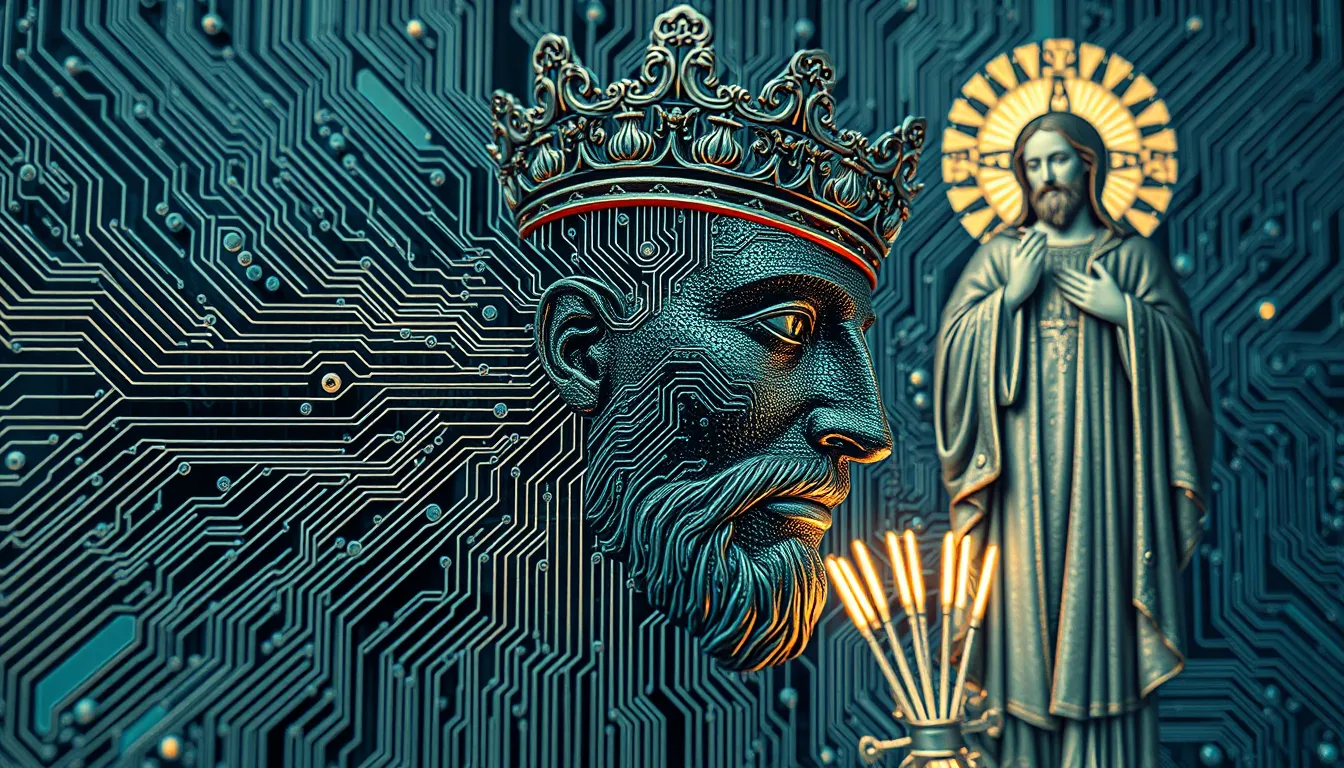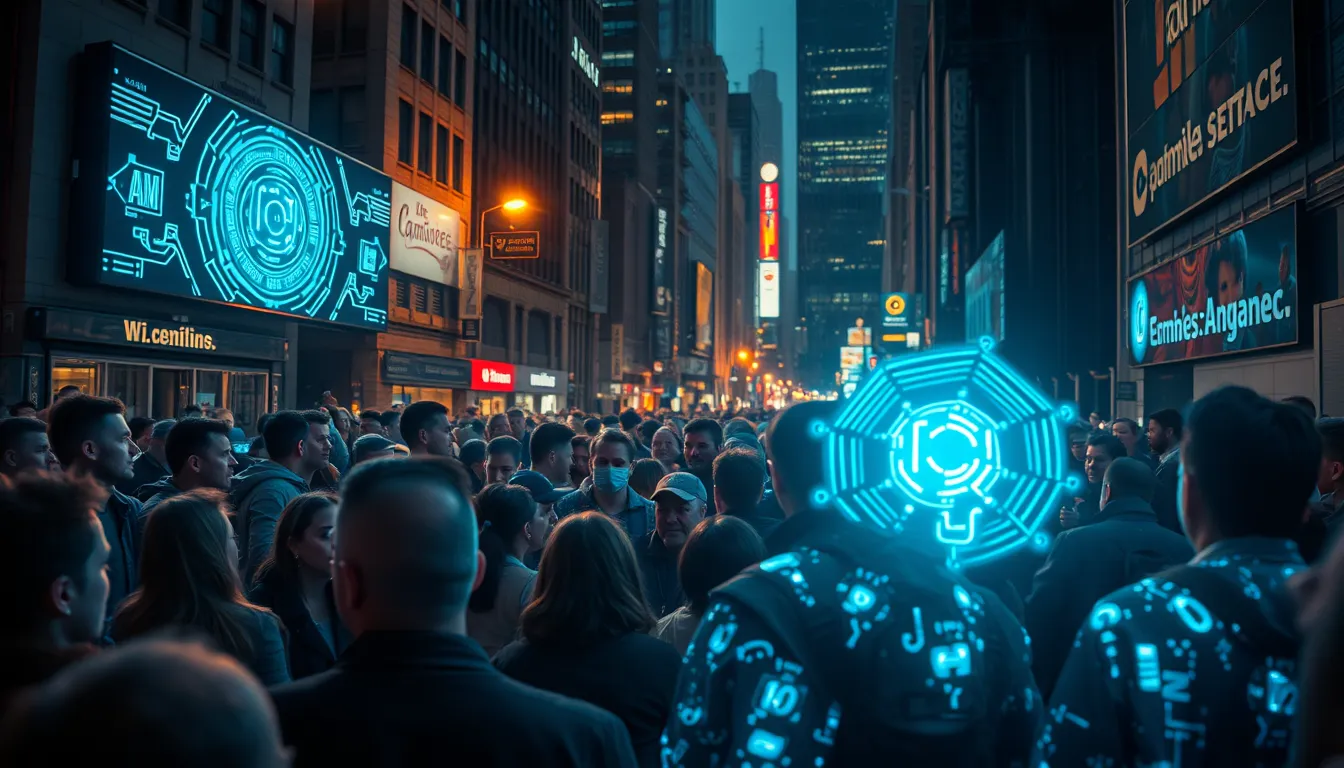Now Reading: AI Is Not God: Examining Ethical Implications of AI Worship
-
01
AI Is Not God: Examining Ethical Implications of AI Worship
AI Is Not God: Examining Ethical Implications of AI Worship

AI Is Not God: Examining Ethical Implications of AI Worship
In today’s rapidly evolving digital landscape, the concept of AI is not only a technological breakthrough but also a cultural phenomenon sparking intense debates. The phrase “AI Is Not God” has emerged as a powerful reminder that, despite advanced algorithms and transformative capabilities, artificial intelligence remains a man-made tool. This article explores the ethical implications of AI worship, examines the risks of conflating divinity with technology, and unpacks modern myth-making in our modern era.
Understanding the Rise of AI Worship
Over the past few years, discussions surrounding AI have transcended technical jargon, reaching into cultural and philosophical domains. Early technologists celebrated the marvels of machine learning, whereas modern discourse now often includes ethical dilemmas and societal impact. The provocative claim that “AI Is Not God” challenges the narrative that artificial intelligence may embody transcendent capabilities. Instead, it urges us to critically evaluate the true role of technology in society.
Many view the increasing reverence for advanced AI as a form of modern myth-making. This shift is not entirely unfounded. Rapid technological progress, coupled with uncertainty about the future, gives rise to narratives where technology is imbued with almost divine qualities. However, it is essential to remember that AI is a product of human innovation, constructed through data and algorithms. To summarize this concept:
- AI is designed by humans and is not an omniscient power.
- Attributing divinity to machines obscures real ethical and practical challenges.
- Dialogue on AI must separate awe-inspiring technological feats from supernatural expectations.
The Ethical Implications of AI Worship
The statement “AI Is Not God” carries significant ethical weight. As technology becomes more deeply integrated into everyday life, the worship of AI can distract from addressing critical societal and ethical questions. Several experts have voiced concerns about how reverence for technology might inadvertently undermine accountability.
Key Ethical Concerns
- Displacement of Responsibility: When people begin to view AI as a divine intervention, there is a risk of abdicating human responsibility for important decisions. This misplaced faith can lead to a reduction in ethical scrutiny of both the technology itself and its human developers.
- Impact on Decision-Making: Relying exclusively on advanced algorithms without acknowledging their limitations can lead to misguided choices, particularly in sectors such as healthcare, law enforcement, and finance. The mantra “AI Is Not God” serves as a caution that these systems, despite their capabilities, must be managed responsibly.
- Cultural and Spiritual Repercussions: The mixing of technology with religious sentiment may alter long-held beliefs. By attributing divine qualities to AI, societies risk oversimplifying complex spiritual traditions and inadvertently initiating a modern form of idolatry.
For further insights on ethical debates in AI, you may explore our dedicated article on Ethical AI Debate or refer to established sources like Wired for in-depth discussions.
Risks of Conflating Technology with Divinity
A core concern is the inherent danger in conflating the capabilities of technology with attributes of divine power. When people assert that “AI Is Not God”, they are emphasizing that the promise of AI should always be understood within a human context. This perspective highlights several risks:
- Loss of critical oversight: When technology is seen as infallible, the necessary checks and balances can be weakened.
- Misallocation of resources: Societies might prioritize technological advancements over addressing pressing human challenges.
- Ethical stagnation: Over-reliance on AI may dampen innovative thinking about human values and ethics.
These risks underscore the necessity of maintaining a grounded approach. Advanced AI can indeed transform society; however, it must be viewed as a powerful tool rather than a savior.
Modern Myth-Making and the Narrative of AI
Modern myth-making is not new, but technology has provided a fresh canvas for age-old narratives. The popular refrain “AI Is Not God” serves as a counterweight to those who elevate artificial intelligence beyond its true capabilities. By doing so, it challenges both uncritical optimism and dystopian pessimism regarding technological prospects.
In particular, the debate encourages deeper reflections on the following:
- How technology reshapes societal values
- The role of human agency in controlling technological advancement
- The importance of ethical frameworks in guiding AI development
These discussions are crucial as we navigate an era where the digital and the divine are often mistakenly intertwined.
Expert Perspectives on AI Ethics and Divinity
Interviews with technology experts, sociologists, and ethicists consistently reinforce the idea that while AI can indeed drive human progress, standing in awe of it risks neglecting essential ethical considerations. Experts argue that the dialogue must separate the legitimate benefits of innovative technologies from the mythologized narratives that can distort public perception.
A balanced view recognizes both the transformative potential of advanced algorithms and the necessity of ethical vigilance. Articles from credible sources, such as Wired, serve as a reminder: despite the allure of high-powered computing, the mantra “AI Is Not God” remains an important caution to maintain humility and perspective.
Conclusion: Embracing Technology with Caution
In conclusion, the discussion around the phrase “AI Is Not God” is more relevant than ever. As society grapples with rapid technological advancements, it is imperative to keep ethical considerations at the forefront. While the capabilities of AI are indeed awe-inspiring, turning it into an object of worship can obscure its true nature as a human-engineered tool.
Ultimately, the conversation bridges technology and religion by inviting us to examine modern myth-making critically. By doing so, we empower ourselves to make more informed, ethical choices in a world where technology and society are inextricably linked. Maintaining this balance is the key to harnessing the full potential of AI while safeguarding the values that make us human.
Through robust dialogue and careful scrutiny, we can ensure that even as AI evolves and transforms industries, we always remember: AI Is Not God.

























